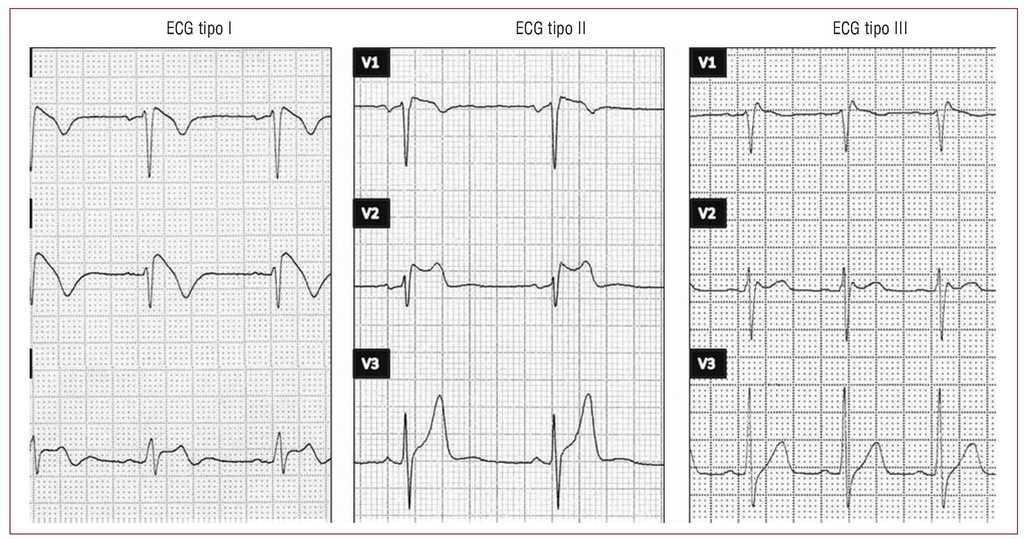Table of Contents
What is brugada syndrome?
Brugada syndrome is a heart rhythm disorder in which the electrocardiographic pattern shows a predisposition to present ventricular arrhythmias and, as a consequence, sudden death. It is a rare syndrome, but its consequences are potentially fatal.
Heart rate irregularities in patients with brugada syndrome usually start in the lower chambers of the heart or ventricles. As a rare disease, the treatment is not well known. This is especially so because treatment usually includes preventive measures to avoid an increase in heart rate. In some cases, an implantable cardioverter defibrillator, a medical device designed precisely for this particular pathology, may be used.
How do I know if I have brugada syndrome?
One of the biggest problems with brugada syndrome is that, in general, patients do not know they have the disease. This happens because the disease does not manifest any noticeable symptoms that allow the problem to be easily identified. However, there are some symptoms that can be associated with the syndrome, such as:
- Frequent dizziness.
- Unexpected fainting.
- Difficulty in breathing.
- Gasping and tiredness.
- Irregular heartbeat or palpitations.
- racing heart
- Possible seizures.
However, the most important thing to determine if the patient suffers from brugada syndrome, is an abnormal recording of palpitations through an electrocardiogram. This test has the ability to measure the electrical activity of the heart.
Considering that the possible symptoms of brugada syndrome can also be associated with other diseases, it is important that, in case of presenting some of these signs, a specialist is consulted to determine whether it is this pathology or any other heart rhythm condition.
It is important to pay attention to the manifestations of the disease. Especially when fainting occurs or inconsistencies in heart rhythm are observed. In these cases, it is essential to seek medical attention immediately to obtain a diagnosis that verifies the presence of the syndrome and, thus, to generate an appropriate treatment for it.
On the other hand, we must bear in mind that if there is a family history of brugada syndrome, the specialist doctor can be asked to carry out tests to rule out the disease and reduce the risk of sudden death due to it.
Causes of brugada syndrome
The heartbeat is generated by an electrical impulse produced by special cells located in the right upper chamber of the heart. Here are also located small pores that serve as channels and are responsible for transmitting the electrical activity to produce the heartbeat.
In the case of brugada syndrome, these channels have certain defects. This causes the heart to beat much faster than normal and generates a very dangerous heart rhythm called ventricular fibrillation. In addition, as a result of this problem, the heart is not able to pump enough blood to the body. This can lead to abnormal fainting at best. When the abnormal heart rhythm is prolonged for too long, this disease is capable of generating cardiac death because the irregularity in the heartbeat does not stop.
In addition to this specific condition that is considered the main cause of the brugada syndrome condition, there are other secondary causes that can also affect the heartbeat rhythm. These are:
- Abnormalities in the structure of the heart.
- Imbalance in the chemicals that transmit electrical signals to the heart.
- Prescription drugs or cocaine use.
In addition to the causes, it is important to know the risk factors of brugada syndrome to determine under what circumstances we are more susceptible to the disease. For this reason, it is important to take into account family history, gender, symptoms and even the patient’s location.
So, is it inherited?
In general, the syndrome usually occurs because of a family history. However, this does not mean that it is inherited. Those whose family members are deceased or have had symptoms of brugada syndrome are much more susceptible to the disease for genetic reasons that modify or alter the functioning of the cardiovascular system.
There are even some specific characteristics that have been shown to influence the diagnosis. For example, people who suffer from this disease are usually men. In fact, studies and statistics have shown that brugada syndrome occurs more frequently in Asians than in people of other ethnicities around the world.
Finally, another important risk factor is fever. Although fever does not cause the disease as such, it can cause irritability of the heart. This causes an increase in heart rate and, consequently, sudden fainting or even cardiac arrest. Especially in the case of children.
How is brugada syndrome transmitted? Brugada syndrome and genetics
Generally, the transmission of brugada syndrome is associated with hereditary patterns. This is the main reason why it is recommended that, in case of having a family history of this disease, it is recommended to go to the doctor to keep a control of the case and receive appropriate treatment. In this way we would be reducing the risk of death due to this pathology.
However, it is important to bear in mind that sometimes the disease does not appear due to hereditary causes, but is sporadic. In fact, significant relationships have been shown in the number of patients who have the syndrome without a family history. For this reason it is essential to pay attention to the signs and symptoms. Especially those that may be causing heart rhythm irregularity in order to treat the problem in time.
Even so, of course, brugada syndrome is a disease of genetic origin that is caused by alterations in the genes responsible for generating cardiac proteins, which in turn regulate the passage of the small electrical discharges that produce the heartbeat to carry blood to the body.




